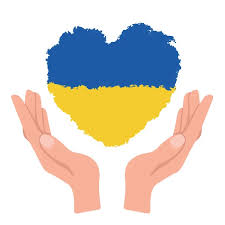Lawyer
Legal aspects of protecting the rights to freedom of movement for persons who have experienced violence in the occupied territories
Freedom of movement is a fundamental right of every person, enshrined in international and national legal acts. For persons who have experienced violence in the occupied territories, this right is particularly important, as ensuring freedom of movement is a key element of their safety and the restoration of normal life. In this article, we will look at the legal aspects of protecting the rights to freedom of movement, including legal advice, document analysis, legal opinion and a legal opinion of a lawyer.
Consultation of a lawyer
Consulting a lawyer is the first and most important step for victims of violence in the occupied territories to restore and protect their rights to freedom of movement. During the consultation, the lawyer will help assess the legal situation, develop an action plan and provide recommendations for legal protection. The lawyer will explain which legal norms regulate the issue of freedom of movement and which legal instruments can be used to protect this right.
The lawyer will also provide information on possible legal actions, such as submitting applications to the relevant authorities, going to court and other measures to restore violated rights. Consulting a lawyer helps to get a full understanding of the legal situation and possible ways to protect the rights to freedom of movement.
Analysis of documents
Document analysis is a critical stage in the process of protecting the rights to freedom of movement. Lawyers carry out a detailed analysis of documents such as passports, residence documents, travel permits, court decisions and other documents confirming the right to freedom of movement.
This analysis allows you to determine the legal status of documents, identify possible violations and prepare the necessary steps to eliminate them. The lawyer also checks the compliance of actions of state bodies with the requirements of current legislation and provides recommendations for updating or obtaining new documents, if necessary.
Legal opinion
The legal opinion is the result of a lawyer's consultation and document analysis. This is a document containing a legal assessment of the situation, identified problems and recommendations for further actions. A legal opinion helps individuals understand the legal status of their documents and possible ways to protect their rights to freedom of movement.
The legal opinion also provides recommendations for addressing the relevant authorities, court procedures and other measures necessary to protect the rights to freedom of movement. This document is an important tool for further action and protection of the interests of persons who have experienced violence in the occupied territories.
Legal opinion of the lawyer
A lawyer's legal opinion is a detailed analysis of the legal situation, prepared on the basis of consultation and analysis of documents. This is a document containing a detailed analysis of the legal aspects of the situation, identified violations and possible ways to resolve them.
The lawyer's legal opinion includes legal arguments that can be used in court cases, recommendations for further actions and strategies for protecting freedom of movement rights. This is an important document that helps individuals effectively protect their rights in court and other legal proceedings.
Conclusion
Protecting the rights to freedom of movement for persons who have experienced violence in the occupied territories is a complex and multifaceted process. A lawyer's consultation, document analysis, legal opinion and a lawyer's legal opinion are key steps in this process. They help individuals understand their rights, identify potential problems, and effectively protect their interests.
Legal mechanisms for the protection of the right to freedom of movement ensure the possibility of restoring violated rights and obtaining justice. Legal support is necessary to successfully protect the rights to freedom of movement and ensure the legal security of persons who have experienced violence in the occupied territories.

































